Live on the homepage now!
Reader Supported News
According to Steele, the tape was never released because Russia got what it wanted from Trump when he was president.
Perhaps, though, he was just trying to get ahead of the fact that on Sunday, the author of the infamous Russia dossier sat down for his first major interview, during which he told George Stephanopoulos that he does believe there is a tape out there of Trump, circa 2013, employing a gaggle of prostitutes to perform a golden shower show for him on a Moscow hotel room bed. Speaking to ABC News, former British intelligence agent Christopher Steele, the subject of a new documentary out today, said that despite the immense criticism the dossier has come under since it was leaked, he “stand[s] by the work we did, the sources that we had, and the professionalism which we applied to it.”
Per ABC News:
Steele’s dossier has come under immense scrutiny since its release. And yet in many ways, it proved prescient. The Mueller probe found that Russia had been making efforts to meddle in the 2016 campaign, and that Trump campaign members and surrogates had promoted and retweeted Russian-produced political content alleging voter fraud and criminal activity on the part of Hillary Clinton. Investigators determined there had been “numerous links—i.e. contacts—between Trump campaign officials and individuals having ties to the Russian government.” And, proof emerged that the Trump Organization had been discussing a real estate deal in Moscow during the campaign. All were findings that had been signaled, at least broadly, in Steele’s work.
Steele continues to defend the inclusion of some of the dossier’s more controversial claims, including that Michael Cohen, Trump’s former personal attorney and self-described fixer, traveled to Prague in 2016 for secret meetings with Russian interlocutors—a claim that Cohen has vehemently denied, and that the FBI later determined not to be true.
Asked if he thinks it hurts his credibility that he won’t accept the FBI’s conclusion in the case of Cohen, Steele told Stephanopoulos: “I’m prepared to accept that not everything in the dossier is 100% accurate. I have yet to be convinced that that is one of them.” (In a statement, Cohen told ABC News, “I’m pleased to see that my old friend Christopher Steele, a/k/a Austin Powers, has crawled out of the pub long enough to make up a few more stories. I eagerly await his next secret dossier which proves the existence of Bigfoot, the Loch Ness Monster and that Elvis is still alive.”)
While Steele acknowledged that no corroborating evidence has been found for many of his dossier claims, he argued that very little contradictory evidence exists either—a line of defense that his critics have found problematic. Perhaps the most attention-grabbing headline from the Steele dossier—and another claim that remains uncorroborated—was a report of the supposed existence of a “pee tape” allegedly collected by Russian intelligence services. According to the dossier, the tape purportedly shows Trump “employing a number of prostitutes to perform a ’golden showers’ (urination) show in front of him” on a bed where the Obamas supposedly once stayed.
Steele told ABC News he believes the alleged tape “probably does” exist—but that he “wouldn’t put 100% certainty on it.”
Trump, of course, has vehemently denied the existence of the tape in question, claiming last week that Melania Trump told him, “I don’t believe that one”—though, according to former FBI director James Comey, the 45th president was obsessed with having the bureau investigate its alleged existence and told Comey, “If there’s even a one percent chance my wife thinks that’s true, that’s terrible.”
Asked by Stephanopoulos why, if the tape really exists, it hasn’t been released, Steele responded: “I think the Russians felt they’d got pretty good value out of Donald Trump when he was president of the U.S.”
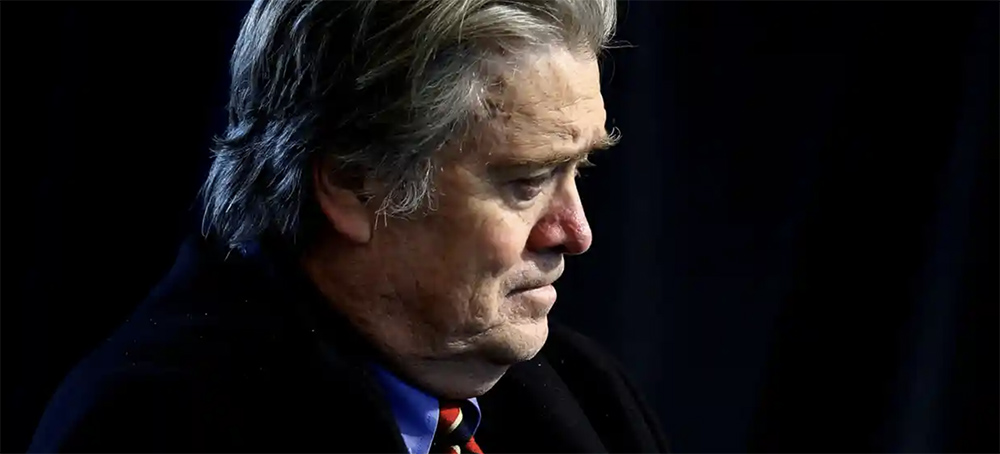 The prospect of prosecution appears not to have worried Steve Bannon, who spent the day before his deposition date a hundred miles away in Virginia. (photo: Jonathan Ernst/Reuters)
The prospect of prosecution appears not to have worried Steve Bannon, who spent the day before his deposition date a hundred miles away in Virginia. (photo: Jonathan Ernst/Reuters)
The select committee approved the contempt of Congress citation unanimously, sending the report to the Democratic-controlled House, which is expected on Thursday to authorize the panel to go to court to punish Bannon for his non-compliance.
“It is essential that we get Mr Bannon’s factual and complete testimony in order to get a full accounting of the violence of January 6th and its causes,” said Bennie Thompson, the chairman of the select committee.
“Mr Bannon will comply with our investigation or he will face the consequences,” he said. “We cannot allow anyone to stand in the way of the select committee as we work to get to the facts. The stakes are too high.”
Members on the select committee took the aggressive step against Bannon to sound a warning to Trump White House officials and others connected to the Capitol attack that defying subpoenas would carry grave consequences, according to a source on the panel.
The select committee had issued a bevy of subpoenas to some of Trump’s closest advisers – White House chief of staff Mark Meadows, his deputy Dan Scavino, defense department aide Kash Patel, and Bannon – under the threat of criminal prosecution.
But under orders from the former president and his lawyers, Bannon ignored his subpoena compelling documents and testimony in its entirety. The other three Trump administration aides opened negotiations over the extent of their possible cooperation.
The ramifications for Bannon’s defiance are significant: once passed by the House, the justice department transfers the case to the office of the US attorney for the District of Columbia, which is required to take the matter before a federal grand jury.
In pushing to hold Bannon in contempt of Congress, the select committee has also set up a potentially perilous legal moment for Bannon as he resists the inquiry into what Trump knew in advance of efforts to stop the certification of Joe Biden’s election win.
A successful contempt prosecution could result in up to a one-year sentence in federal prison, $100,000 in fines, or both – although the misdemeanor offense may not ultimately lead to his cooperation and pursuing the charge could still take years.
Bannon remains a key person of interest to House select committee investigators in large part because he was in constant contact with Trump and his team in the days before 6 January, as the former president strategized how to return himself to the Oval Office.
He also appeared to have advance knowledge of the Capitol attack, predicting on his War Room podcast, the day before the insurrection that left five dead and 140 injured: “All hell is going to break loose tomorrow.”
In opening statements ahead of the vote, Republican congresswoman and committee member Liz Cheney said: “Mr Bannon’s and Mr Trump’s privilege arguments do appear to reveal one thing, however: they suggest that President Trump was personally involved in the planning and execution of January 6th. And we will get to the bottom of that.”
But the former chief strategist to Trump indicated to the select committee he would not cooperate with his 23 September subpoena on grounds that communications involving Trump are protected by executive privilege and cannot be revealed to Congress.
The legal argument faces a steep uphill battle with the Biden justice department appearing inclined to adopt a narrow interpretation on executive privilege, previously allowing top Trump justice department officials to testify to Congress about 6 January.
And as the justice department examines the expected referral from the House in finer detail, prosecutors may open Trump to legal jeopardy insofar as he may have obstructed justice by ordering Bannon and other aides to defy the subpoenas.
The select committee said in the contempt report that Bannon had no basis to refuse his subpoena because Trump never actually asserted executive privilege – but also because Bannon tried to use an executive privilege claim for non-executive branch materials.
Within the scope of the subpoena demanding documents and testimony, the report said, included contacts with members of Congress and Trump campaign officials in the days before 6 January, which are ostensibly unrelated to communications between Bannon and Trump.
The contempt report added that even if the select committee accepted his executive privilege claim, the law makes clear that even senior White House officials advising sitting presidents have the kind of immunity from congressional inquiries being claimed by Bannon.
The report further noted: “If any witness so close to the events leading up to the January 6 attack could decline to provide information to the select committee, Congress would be severely hamstrung in its ability to exercise its constitutional powers.”
The prospect of prosecution appears not to have worried Bannon, who spent the day before his deposition date a hundred miles away in Virginia, where he attended a Republican rally that featured a flag purportedly carried by a rioter at the Capitol attack.
Trump lashed out at the select committee after it announced it would vote to hold Bannon in contempt. “They should hold themselves in criminal contempt for cheating in the election,” he said, repeating lies about a stolen election refuted by the justice department.
Still, the select committee’s net appears to be closing in on the former president. Thompson, the chair of the select committee, said on CNN on Thursday that he would not rule out eventually issuing a subpoena for Trump himself.
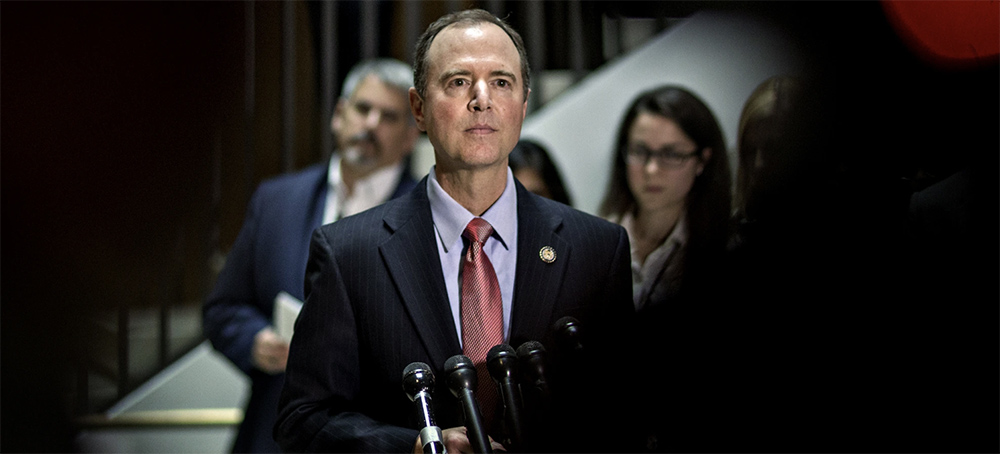 House Intelligence Committee Chairman Adam Schiff at a news conference on Capitol Hill on March 30, 2017. (photo: Andrew Harrer/Bloomberg/Getty Images)
House Intelligence Committee Chairman Adam Schiff at a news conference on Capitol Hill on March 30, 2017. (photo: Andrew Harrer/Bloomberg/Getty Images)
Appearing Tuesday on the Yahoo News “Skullduggery” podcast, the California Democrat was asked about the Garland Justice Department’s reluctance to launch investigations of the former president based on the 2018 report by former special counsel Robert Mueller that spelled out Trump’s efforts to obstruct the investigation into Russian interference in the 2016 election. In a new book, “Midnight in Washington: How We Almost Lost Our Democracy and Still Could,” Schiff writes that he viewed Mueller’s report as providing “a factual basis to charge the president with multiple crimes of obstruction.”
“I think there's a real desire on the part of the attorney general, for the most part, not to look backward,” Schiff said in response. “Do I disagree with that? I do disagree with that, and I disagree with it most vehemently when it comes to what I consider even more serious offenses. For example, a taped conversation of Donald J. Trump on the phone with Brad Raffensperger, the secretary of state from Georgia, trying to coerce him into fraudulently finding 11,780 votes.
“Because I think if you or I did that, we'd be under indictment by now,” Schiff added. “In my view, you don't ignore the crimes that have been committed by a president of the United States. They need to be investigated. You may reach the judgment once you've investigated something that the public interest in not prosecuting a former president outweighs the interests of justice. But I don't think you could ignore the crimes.”
Schiff’s comments came as the Jan. 6 select committee, of which he is a member, is prepared to vote Tuesday night to hold former Trump aide Steve Bannon in contempt for refusing to comply with a subpoena for testimony and documents relating to his conversations with Trump, as well as his advisers and lawyers, about their efforts to block Congress’s certification of the Electoral College results that Joe Biden won last November’s election. Bannon’s lawyer has said his client was responding to a request from the former president to refuse cooperation on the grounds that any advice Bannon gave was confidential and covered by executive privilege.
But Schiff said Bannon’s claims were without merit and that once the committee votes to hold Bannon in contempt, he expects the full House to vote to refer the matter to the Justice Department for criminal prosecution.
“The speaker will refer to the Justice Department, where the statute says the Justice Department has a duty to present it to the grand jury,” Schiff said. “Now, that duty is not always fulfilled. But there are some very positive signs that it will be fulfilled. It really needs to be.”
“I think the indications are strong that the Justice Department will take this seriously, as they should,” he added. “There's not even a colorable claim of privilege in Bannon's case. He was long gone from the administration by the time of the events that we're talking about. And what's more, he can't just say, ’I'm gonna refuse to appear.’”
A Justice Department spokesman did not immediately respond to Schiff’s comments about Garland or his assertion that there were “positive signs” that the Justice Department will pursue the criminal prosecution of Bannon. But Schiff, who served as the lead House prosecutor during the first impeachment trial of Trump, said he is clearly most concerned about the Justice Department’s lack of prosecutorial zeal when it comes to the former president.
He said that “maybe I’m wrong” and that Justice is secretly collecting evidence from a grand jury into Trump’s efforts to pressure state officials in Georgia to overturn the election results in that state, which favored Biden. But he fears Garland and his top aides are relying on Fulton County District Attorney Fani T. Willis, who has publicly confirmed her own investigation into the matter.
“I suspect that they’re counting on the Fulton County DA to do justice, and I don’t think that is how we ought to view the magnitude of that effort to overturn the election.”
Schiff even raised the question of why the former president is not being prosecuted for violation of the election laws in 2016, when he provided funds to his then-lawyer Michael Cohen to pay off a former porn star to keep silent about a long-ago sexual tryst with Trump.
“There's also an indictment in the Southern District of New York, in which individual No. 1 directed and coordinated a campaign fraud scheme in which the Justice Department argued that the guy who ... coordinated and directed, Michael Cohen, needed to go to jail,” Schiff said.
“So, what's the argument that the guy that did the coordinating and did the directing gets a pass? My view in light of Nixon being pardoned, the Justice Department taking a position you can't prosecute a sitting president, which I also disagree with — to say now that as a practical matter you can't prosecute a former president would make the president above the law.
“And that's a dangerous proposition in the abstract. Given that Trump is, I think, already running for president again, it's an even more dangerous prospect for the future.”
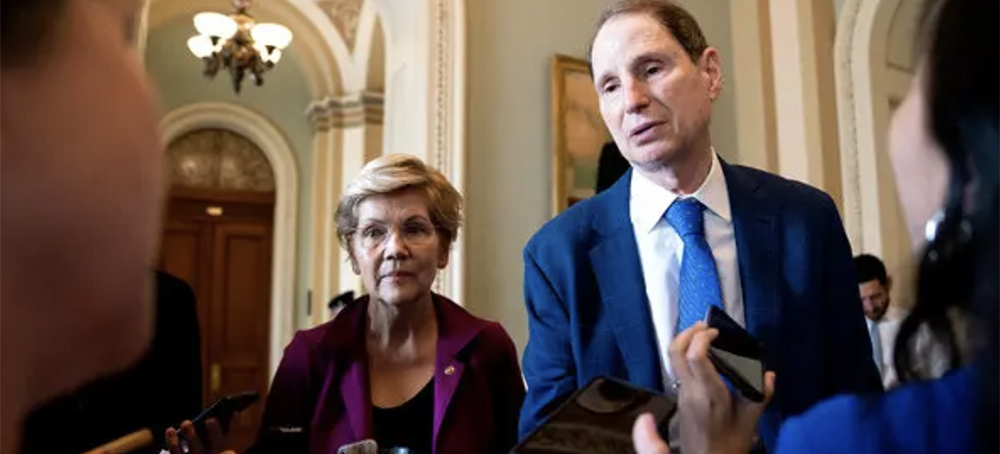 Senators Elizabeth Warren and Ron Wyden in July. On Tuesday, they unveiled a revised Democratic plan for bank reporting requirements to the I.R.S. (photo: Stefani Reynolds/NYT)
Senators Elizabeth Warren and Ron Wyden in July. On Tuesday, they unveiled a revised Democratic plan for bank reporting requirements to the I.R.S. (photo: Stefani Reynolds/NYT)
The new proposal, which would help pay for the expansive social policy and climate change bill that includes it, narrows the scope of information that banks would have to provide to the I.R.S. about customer accounts. Under the revised plan, which is backed by the Biden administration, banks would be required to provide data on accounts only with total annual deposits or withdrawals worth more than $10,000, rather than the $600 threshold that was initially proposed. The reporting requirement would not apply to payroll deposits for wage and salary earners or to beneficiaries of federal programs such as Social Security.
The plan was narrowed after a steady lobbying campaign by banks and a barrage of criticism from Republicans, who argued that the administration’s desire to bolster the I.R.S. to shrink the $7 trillion “tax gap” amounted to an invasion of privacy and government overreach.
Senators Ron Wyden of Oregon, chairman of the Finance Committee, and Elizabeth Warren, Democrat of Massachusetts, accused detractors of lying to protect affluent tax cheats. But their decision to pull back the initial proposal showed how legislation containing measures that Democrats believed only weeks ago would be politically unassailable — from cracking down on rich tax scofflaws to allowing the government to negotiate lower drug prices — could succumb to challenges from well-financed opponents. With no votes to spare in an evenly divided Senate, opponents need to change just one vote to doom a provision in the social policy bill.
Critics of the proposal have incorrectly suggested that the I.R.S. would be tracking information about individual transactions. The administration has said the I.R.S. would not monitor specific customer transactions but instead use the account information to spot discrepancies between it and what individuals reported on their tax returns.
“Banks and their wealthy clients are outright lying, saying they would see individual transactions, and Republicans are backing them up,” Ms. Warren said.
The Biden administration insists that audit rates for those making less than $400,000 would not go up and that the program was focused on collecting unpaid taxes from the rich.
But Republicans, who have expressed distrust of the I.R.S. for years, continued to criticize the proposal as an invasion of privacy. It is familiar ground. In the 1990s, Republicans orchestrated well-attended hearings on I.R.S. abuse that portrayed the agency as out of control. In 2013, Republicans accused the I.R.S. of targeting conservative groups, although the political targeting crossed party lines.
“Whether it’s $600 or $10,000, under this proposal, the intimate financial details of everyone in this room — at a minimum, of every American who has a job — will be turned over on a daily basis to the I.R.S.,” Senator John Kennedy, Republican of Louisiana, told reporters, despite the proposal’s exemption of payroll deposits. “What could possibly go wrong?”
Senator Kevin Cramer, Republican of North Dakota, warned darkly, “Marx is at the doorstep.”
Mr. Wyden called the Republican accusations a flat-out “lie” promulgated by lawmakers at the behest of “donors and allies” who “want nothing more than a crippled I.R.S. unable to go after their cheating.” Under the revised plan, instead of daily transaction reports, banks would send “two numbers once per year,” Mr. Wyden said, “the total amount going into an account, and the total amount going out of it.”
But the campaign has taken its toll. The Treasury Department said the Biden administration would back the narrower proposal because the I.R.S. already had information about American workers and retirees. While it would give the agency visibility into far fewer bank accounts, the Treasury said in a fact sheet on Tuesday that “only those accruing other forms of income in opaque ways are a part of the reporting regime.”
“Today’s new proposal reflects the administration’s strong belief that we should zero in on those at the top of the income scale who don’t pay the taxes they owe, while protecting American workers by setting the bank account threshold at $10,000 and providing an exemption for wage earners like teachers and firefighters.” Treasury Secretary Janet L. Yellen said in a statement.
“The main reason Republicans have latched on to this issue as the one to lie about every day is because they know their tax agenda is a political loser,” Mr. Wyden said. “The American people overwhelmingly want to ensure megacorporations and billionaires pay their fair share, so Republicans have largely given up on their tired trickle-down arguments.”
Banks already submit tax forms to the I.R.S. about the interest that customer accounts accrue. But the new proposal would require them to share information about account balances so the I.R.S. can see if there are large discrepancies between the income that people and businesses report and what they have in the bank. The I.R.S. could investigate the gaps to see if those taxpayers were evading their obligations.
The Treasury Department has estimated that its original proposal to require banks to report account balances, along with plans to beef up the enforcement staff at the I.R.S., could raise $700 billion over a decade.
In a letter to House Democrats last month, Ms. Yellen urged lawmakers not to water down the information-reporting proposal. Originally, that part of the plan was projected to raise $460 billion over a decade. The Treasury Department estimated that the narrower plan that Congress had been considering could raise between $200 billion and $250 billion over that time.
The department believes that those are conservative estimates and that the “deterrent effects” of the policies could still generate $700 billion of additional tax collection in the next decade.
Republicans continued to raise the possibility that any new reporting rule would expand to target lower-income taxpayers. Senator Michael D. Crapo of Idaho, the ranking Republican on the Finance Committee, pointed to an analysis by Congress’s nonpartisan Joint Committee on Taxation that estimated that half the unpaid taxes came from taxpayers making less than $50,000 a year.
Taxpayers earning at least $500,000 are hiding only 4 percent to 9 percent of the money that could be recovered by a crackdown in tax cheating, Mr. Crapo said.
Mr. Wyden said that analysis was dated and was crippled by the committee’s inability to track how much money was owed to the I.R.S., especially by those using complicated tax schemes like multilayered partnerships and multiple bank transactions, which the new reporting requirements would target.
He cited testimony on Tuesday by the deputy Treasury secretary, Wally Adeyemo, who estimated that the wealthiest 1 percent of taxpayers will fail to pay more than $2 trillion in taxes that they owe over the next 10 years.
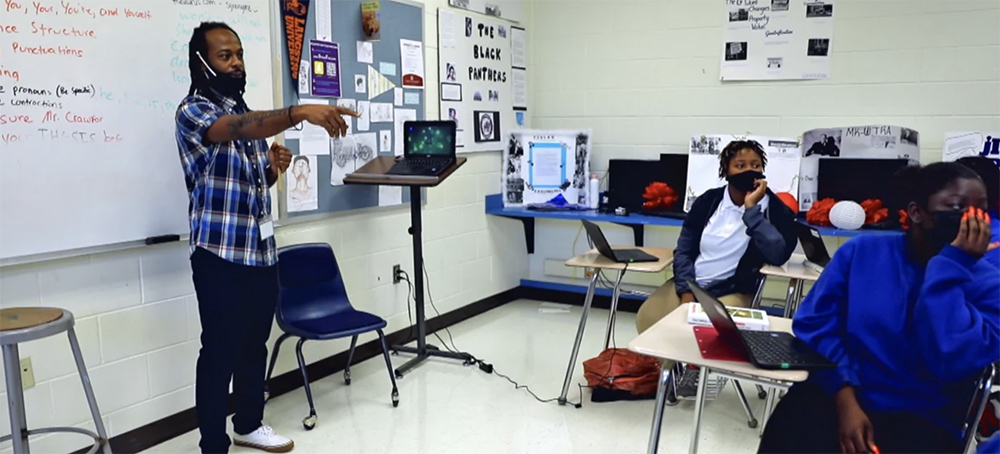 Anthony Crawford teaching at Millwood High School in Oklahoma City. (photo: NBC News)
Anthony Crawford teaching at Millwood High School in Oklahoma City. (photo: NBC News)
The lawsuit, backed by the American Civil Liberties Union and the ACLU of Oklahoma, was filed Tuesday. The organizations argue that HB 1775, which took effect in May, interferes with students' and educators' First Amendment rights to learn and talk about gender and race issues in school.
This policy also prevents students from discussing in-depth American history that reflects the experiences and viewpoints of "all historically marginalized communities in this country," the ACLU argues.
The groups suing asked the court to declare the law unconstitutional under the First and 14th Amendments. They also requested that a judge issue a preliminary injunction that would put an immediate stop to the policy in Oklahoma.
"All young people deserve to learn an inclusive and accurate history in schools, free from censorship or discrimination," said Emerson Sykes, staff attorney with the ACLU Speech, Privacy, and Technology Project.
The organization said this lawsuit is the first of its kind that challenges a state's effort at limiting instruction on critical race theory, which examines how racism as a social construct intersects with history, policy, the law and other areas. It's an advanced teaching usually reserved for law schools and undergraduate sociology courses.
This concept was pushed into the public consciousness by former President Donald Trump last year. Right-wing activists have since made it a cause célèbre and several Republican-led states, including Oklahoma and Idaho, have passed laws attempting to limit its reach in public schools.
But Oklahoma's law doesn't explicitly mention critical race theory in the legislation's text.
HB 1775 states broadly: No public school student in Oklahoma can be required to participate in any form of "mandatory gender or sexual diversity training or counseling." It goes on to say, "Any orientation or requirement that presents any form of race or sex stereotyping or a bias on the basis of race or sex shall be prohibited."
Similarly, lessons showing one race or gender is superior to another or that a person, because of their "race or sex, is inherently racist, sexist or oppressive" are banned.
If teachers are found to be teaching these lessons, they could lose their licenses and schools can lose their accreditation.
"HB 1775 is so poorly drafted — in places it is literally indecipherable — that districts and teachers have no way of knowing what concepts and ideas are prohibited," ACLU attorney Sykes said. "The bill was intended to inflame a political reaction, not further a legitimate educational interest. These infirmities in the law are all the more troubling because the bill applies to public colleges and universities, where the First Amendment is especially protective of academic freedom."
The ACLU says as a result of the law's approval, school districts in Oklahoma have told teachers not use terms like "diversity" and "white privilege" in the classroom. Books and other literary works dealing with race such as To Kill a Mockingbird and Raisin in the Sun have been removed from reading lists
Some schools have also limited or altogether eliminated diversity, equity and inclusion training for their educators, according to the group.
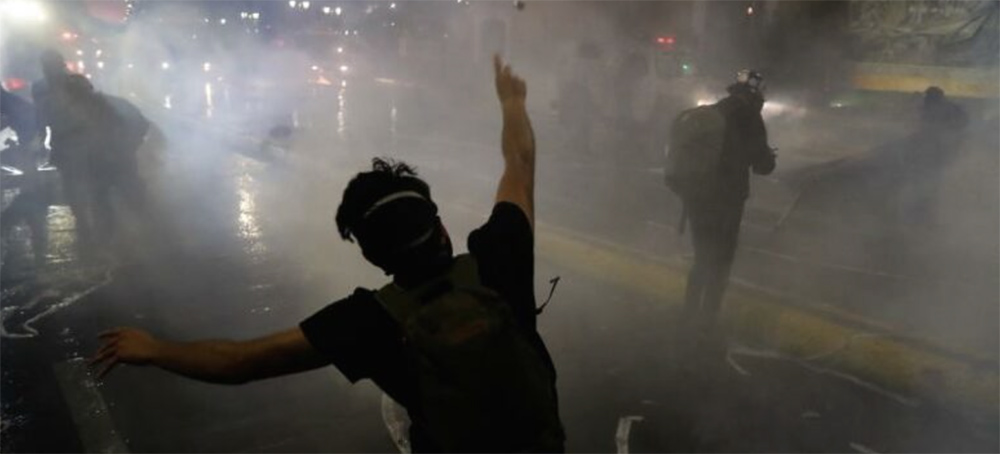 Chile's right-wing government and its opponents traded accusations Tuesday after disturbances surrounding the commemoration of the second anniversary of the start of a popular uprising that led to the convening of a constitutional convention resulted in two deaths and 450 arrests. (photo: La Prensa Latina Media)
Chile's right-wing government and its opponents traded accusations Tuesday after disturbances surrounding the commemoration of the second anniversary of the start of a popular uprising that led to the convening of a constitutional convention resulted in two deaths and 450 arrests. (photo: La Prensa Latina Media)
The anniversary of the social outburst that started the constituent process underway in the southern country was commemorated.
Two people lost their lives in neighborhoods on the outskirts of Santiago, the capital, one by gunshot in an attempt to loot a commercial establishment and the other when he was riding a motorcycle and got entangled with a steel cable.
The largest concentration on Monday took place in the central Plaza Italia, renamed Plaza Dignidad, in Santiago de Chile, with about 10,000 people, according to figures provided by police authorities, who mostly demonstrated peacefully, with chants and music.
The government of Sebastián Piñera, in the midst of corruption scandals, directly blamed several leftist political leaders, including presidential candidates Yasna Provosote and Gabriel Boric, for the episodes of violence and vandalism.
The commemoration by Chilean organizations and social movements of the second anniversary of the social outburst that began on October 18, 2019, ended in episodes of violence, which resulted in two people dead and some 450 arrested, which the ruling party used to blame the leftist candidates for the Presidency.
Two people lost their lives in neighborhoods on the outskirts of Santiago, the capital, one by gunshot in an attempt to loot a commercial establishment and the other when he was riding a motorcycle and got entangled with a steel cable.
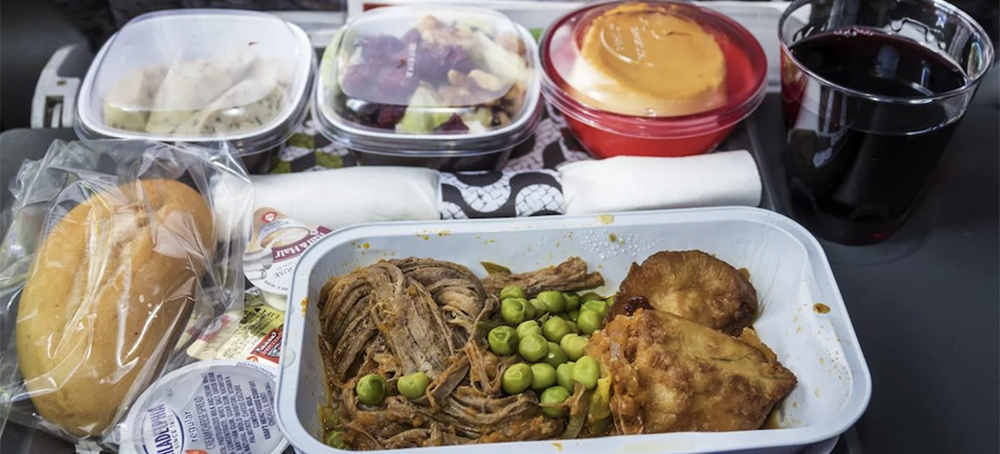 Food packaged in plastic on an airline dinner tray. (photo: Jeffrey Greenberg/Universal Images Group/Getty Images)
Food packaged in plastic on an airline dinner tray. (photo: Jeffrey Greenberg/Universal Images Group/Getty Images)
The study, published in Environmental Pollution on Oct.12, 2021, outlines the dangers of phthalates in food packaging, although these chemicals are also found in shampoos, nail polish, creams, and even baby lotions.
The researchers found that adults aged 55 to 64 with the highest exposure to phthalates are more likely to die from all causes, particularly cardiovascular disease, compared to their counterparts with lower exposure. They found that 90,761 to 107,283 people in this age group with heightened exposure had died.
Those deaths have a great economic impact, too, at an estimated $39.9 to $47.1 billion in lost economic productivity.
To come to these findings, the team analyzed urine samples of over 5,000 U.S. adults that participated in the U.S. National Health and Nutrition Survey, with a special focus on people ages 55 to 64 in order to compare their results with previous studies.
"Our research suggests that the toll of this chemical on society is much greater than we first thought," said Dr. Leonardo Trasande, lead author of the study and director of NYU Langone's Center for the Investigation of Environmental Hazards. "The evidence is undeniably clear that limiting exposure to toxic phthalates can help safeguard Americans' physical and financial wellbeing."
Phthalates, also known as plasticizers, are a group of chemicals that make plastic more durable. These chemicals are somewhat restricted for use in toys, but monitoring of these chemicals in food packaging or personal care items is minimal. Many people ingest or breathe in phthalates, because they are found in everything from flooring to personal care products to plastic packages on food.
According to the FDA, "Under the law, cosmetic products and ingredients, with the exception of color additives, are not subject to FDA approval before they go on the market... At the present time, FDA does not have evidence that phthalates as used in cosmetics pose a safety risk."
The CDC notes that phthalates do show an effect on reproductive systems in animals, but the impact on humans is not fully known. The CDC has also found that phthalate exposure is widespread among the general U.S. population.
That's why the researchers behind this new study are now urging more regulations against phthalates. Dr. Trasande said that this study doesn't establish a direct cause-and-effect relationship between phthalates and death, but it does raise concerns about the widespread exposure to these chemicals in the U.S.
"While further studies are needed to corroborate observations and identify mechanisms, regulatory action is urgently needed," the study authors wrote.
Now, the researchers are planning to study the effect of phthalates on human hormones and inflammation to see if there are further links between these pervasive chemicals and public health.
Follow us on facebook and twitter!
PO Box 2043 / Citrus Heights, CA 95611

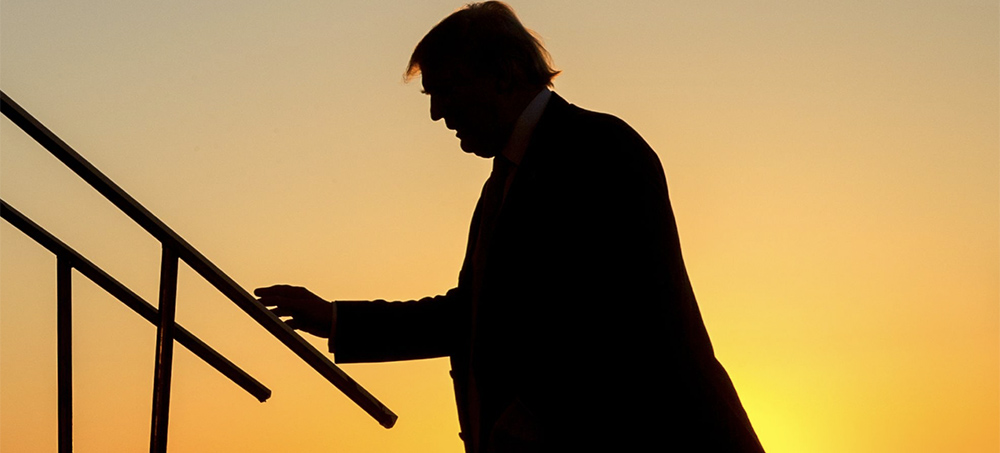

No comments:
Post a Comment